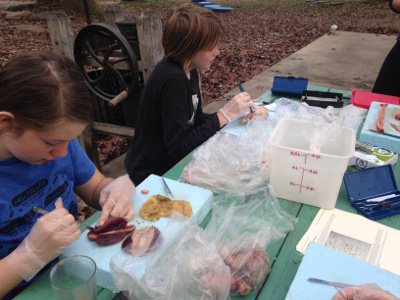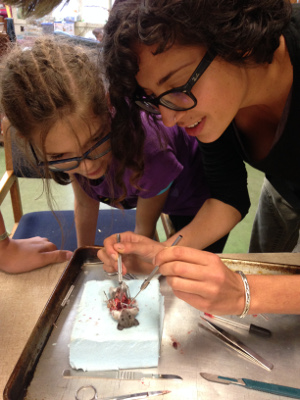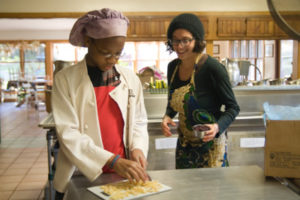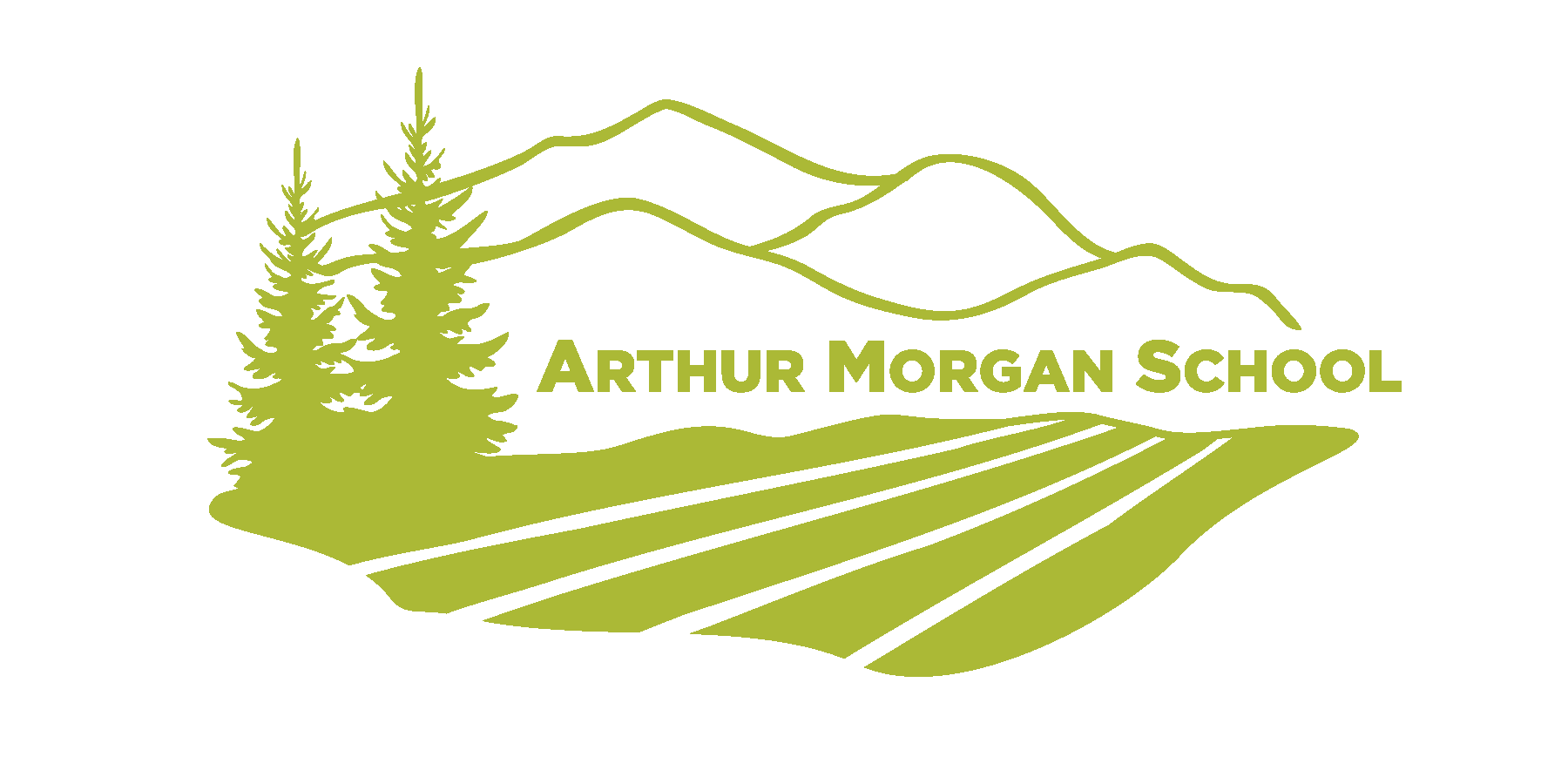Internships as a Middle School Science Curriculum

Creating a science curriculum for middle schoolers can be a challenging experience. Much of the material available to teachers is either directed at the elementary or high school levels. Teachers must either choose between childish introductory activities or heavy texts that get too complicated. Middle schoolers require a different methodology of teaching. In the National Academy of Science’s paper, Exploring the Abilities and Constraints of Adolescent Learners, it describes how middle schoolers need real world context for what they are learning. They want to interact with a topic first hand. How can middle school teachers make science both approachable and relevant?
 Scientific Experience Based Syllabus
Scientific Experience Based Syllabus
Science is a tool for exploring the observable world. It doesn’t make much sense to be teaching it from inside a classroom. At Arthur Morgan School, science teachers use the work of the school to teach their subject. Using internships, they develop a curriculum that provides real world examples. They provide students with an understanding of why science is important and how it is relevant to their lives.
Stemming from the Montessori middle school idea of occupations, the general philosophy of AMS’s internship program is to engage the students in experiential learning opportunities that come from actual work, whether it be general maintenance, farm work, or just cooking in the kitchen
A Variety of Concepts
AMS internships are varied in their scope and range of topics. Here are some examples:
Garden: Garden internships traditionally occur in the fall and spring for two to four students each session. Students might learn about botany, soil science, specific gardening methods, garden pests and parasites, anatomy, raising livestock and animal husbandry.
Maintenance: The maintenance internship program occurs every academic session for two students each time. Students engage in projects that benefit our community on a daily basis. Some examples include: basic carpentry, roofing, vehicle maintenance and repair, painting, electrical work, and plumbing. Students may learn a variety of physics concepts: newtonian forces, simple machines, electrical circuits, etc.
 Kitchen: Food being essential to life, students have the opportunity to nourish their classmates from the inside out. They learn to follow and multiply recipes, prepare meals for 40 people, develop menu plans, stock and maintain a certified kitchen, and how to adapt recipes to fit a variety of dietary needs. Academics may include the chemistry of cooking, biology of nutrition, and history or sociology of cultures from which different cuisines arise.
Kitchen: Food being essential to life, students have the opportunity to nourish their classmates from the inside out. They learn to follow and multiply recipes, prepare meals for 40 people, develop menu plans, stock and maintain a certified kitchen, and how to adapt recipes to fit a variety of dietary needs. Academics may include the chemistry of cooking, biology of nutrition, and history or sociology of cultures from which different cuisines arise.
Through internships, teachers impart skills and ideas which arise spontaneously during the different projects. The exact concepts taught vary from student to student, project to project, but the goal is the same: to capture the spirit of learning.
Building Student’s Confidence in Science
Many middle schoolers also feel nervous about science. Adolescent girls, especially, feel a lack of confidence when engaging with scientific subject matter. AMS’s internships work to build that confidence as well. By doing meaningful work, middle schoolers gain a sense of ownership and capability.
They meet their community’s needs and develop a healthy sense of meaning and accomplishment. They construct their own self-images through purposeful work. The confidence they garner from working translates to confidence when tackling their academics. “Instead of reading physics, we actually get to practice it,” says Hazel, a seventh grader at AMS.
-by Nicholas Maldonado
